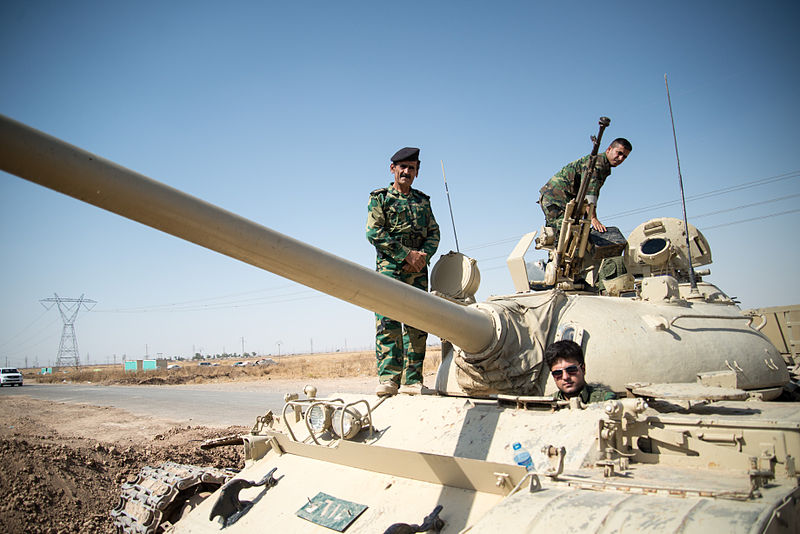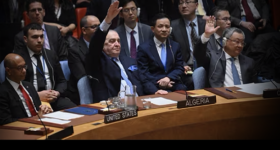21st Century Wire says…
Middle Eastern chaos means opportunity has arisen for the Kurds.
In the following analysis, we hear how the Kurds were a forgotten people when it came to the creation of the modern Middle East we know today. This has meant that many of the over 30 million Kurdish people, mainly found in Syria, Iran, Iraq and Turkey, have felt stateless for just over 100 years; suffering the prejudice and inequality that comes along with such a situation.

Peshmerga fighters are on the frontline against ISIS. (Photo Credit: Boris Niehaus)
The Kurdish Peshmerga forces have, however, been successful in fighting against ISIS, and such success may mean for aspirations of greater empowerment. This is something that could provoke ever greater instability in the region, as existing nation states find their modern borders being threatened once more.
We also hear how oil deals the Kurds hold with the Iraqi government are creating further tensions, and how Western oil companies like ExxonMobil are trying to get in on the action.
Read the analysis below and follow writer Marie Mulville here: http://twitter.com/Marie_Mulville
Kurdish Struggles
Self-Determination – A Kurdish Nation-State?
With the Middle East now undeniably one of the most unstable regions today, the Kurdish question has been resurrected yet again. The chaos caused by ISIS in Iraq and Syria has created opportunities for Kurdish actors to increase their strength politically. As new developments take hold, the on-going saga bears implications for Turkey, Iraq, Syria and of course Iraqi Kurdistan, which hopes to emerge as a new autonomous state from those crumbling around it.
Kurdish minorities and their place in the Middle East
The Kurdish bid for independence highlights the difficulty the region has had in building national identities based on various minorities that live within the countries’ borders. Since the rise of the Islamic State, much has been blamed on the Skyes-Picot line; a remnant of colonial times that is still at the heart of issues today. In the aftermath of World War One and following the collapse of the Ottoman Empire, the newly created borders that sprung from the secret agreement between France and Great Britain paid little regard to the various tribal, ethnic and sectarian divisions. The countries that emerged grouped together various communities and religions that had lived side by side for centuries. The various waves of displacement under Saddam Hussein, the Iraq War of 2003 and now ISIS has changed what was once a religiously pluralistic country.
The Kurds are one of the largest minorities without a sovereign state of their own; 30 million inhabitants live within the borders of Iraq, Syria, Turkey and Iran. The biggest concentration of Kurdish inhabitants is found in Turkey, but no matter where they have settled, their existence has always been built on shaky ground. One such episode took place under Saddam Hussein in the 1980’s and became known as “the War of Annihilation” which resulted in the killing of 180,000 Kurds in an attempt to “Arabize” the region. Iranian Kurds have also suffered repression and marginalization and Kurdish history itself is dominated by in-fighting between the various groups…
Continue reading the full story on Global Public Policy Watch
MORE ON THE MIDDLE EASTERN CRISIS: 21st Century Wire Middle East Files















